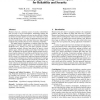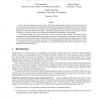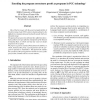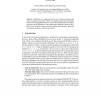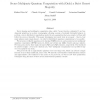224 search results - page 10 / 45 » Secure Computation from Random Error Correcting Codes |
141
click to vote
ASPLOS
2008
ACM
15 years 4 months ago
2008
ACM
Memory errors are a notorious source of security vulnerabilities that can lead to service interruptions, information leakage and unauthorized access. Because such errors are also ...
120
Voted
SP
2006
IEEE
15 years 8 months ago
2006
IEEE
Linux is the most popular open source project. The Linux random number generator is part of the kernel of all Linux distributions and is based on generating randomness from entrop...
106
Voted
PST
2008
15 years 4 months ago
2008
One of the key issues with the practical applicability of Proof-Carrying Code (PCC) and its related methods is the difficulty in communicating and storing the proofs which are inh...
106
Voted
ICN
2001
Springer
15 years 7 months ago
2001
Springer
SplitPath is a new application for the easy, well-known and provably secure one-time pad encryption scheme. Two problems hinder the one-time pad scheme from being applied in the ar...
121
Voted
FOCS
2006
IEEE
15 years 8 months ago
2006
IEEE
Secret sharing and multiparty computation (also called “secure function evaluation”) are fundamental primitives in modern cryptography, allowing a group of mutually distrustfu...
